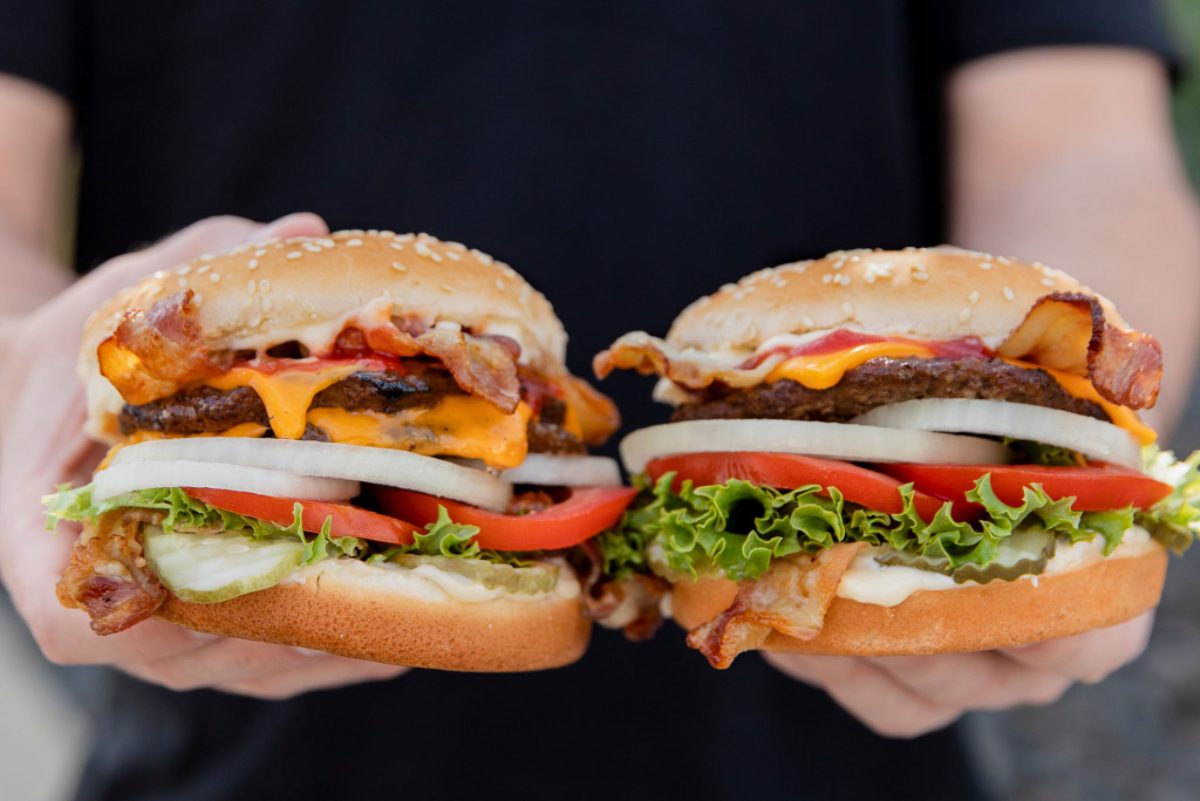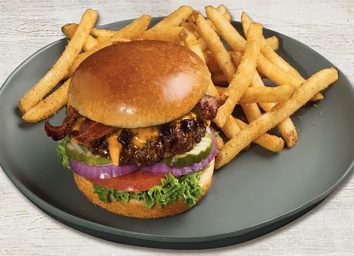4 Popular Fast-Food Chains That Are Shrinking
If you've ever seen a local McDonald's or Wendy's restaurant suddenly go out of business and close up shop, you might not have made much of it—chances are, there's a new one under construction within a several-mile radius. When Burger King made news in 2020 after closing 319 locations, it not only replaced those restaurants the following year, it also built an additional 24 to boot.
The story is a bit different, however, for smaller-scale regional chains. Whether planned for or not, closures at these chains may be felt for years. The midwestern sandwich chain Potbelly, for example, shrunk steadily between 2017 and 2021. Likewise, southeastern burger chain Krystal lost 76 locations between 2017 and 2020.
Here's a look at four other, popular chains that are currently shrinking. And for more, check out 3 Major Pizza Chains Falling Out of Favor With Customers.
Carl's Jr.
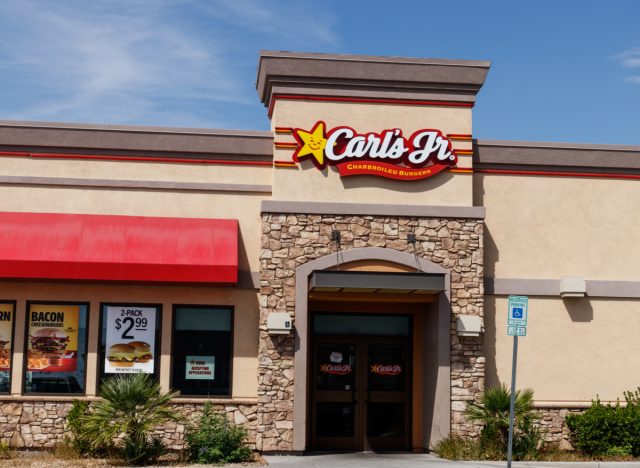
All things considered, Carl's Jr. is doing just fine. The company celebrated the opening of its 1,000th international location in mid-2021, while also reporting its highest-ever per-store sales (estimated to be about $1.25 million). Technically, however, the chain is currently shrinking: based on data reported by Restaurant Business, Carl's Jr.'s U.S. footprint peaked in 2016 at 1,163 units. In the time since, it's been shedding about 15 to 20 stores per year, hitting 1,063 in 2020. A Forbes estimate put the 2021 store count at just over 1,000.
Boston Market
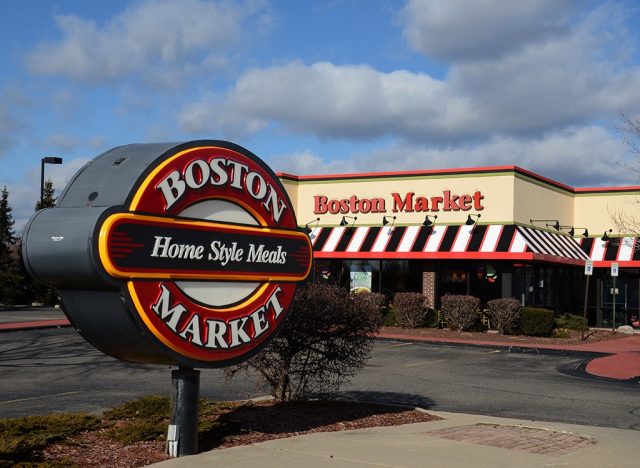
As one of Boston Market's creditors put it in 1998, around the time Boston Market went bankrupt declaring $283 million in debt, "They just expanded too quickly, and the concept just got dull…They won't liquidate, but they are going to have to shrink a lot."
More than two decades later, the creditor is still right on the money: from a high of about 1,100 stores in 1998, Boston Market's store count is still shrinking, with the loss of over 100 locations between 2016 and 2020. A recent estimate puts the Boston Market 2022 footprint at just 340 restaurants.
Quiznos
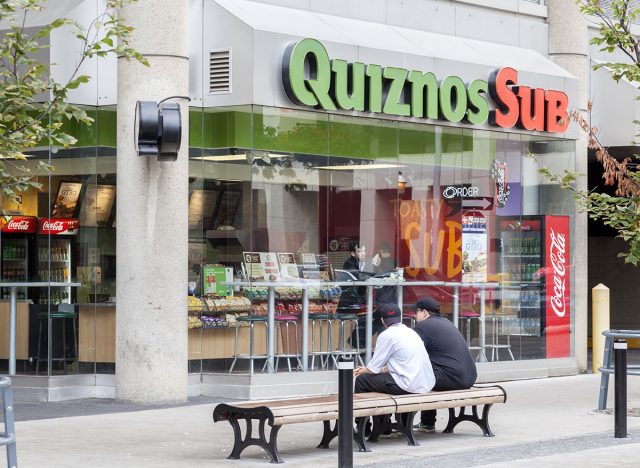
The once-popular sandwich chain—which, at its peak, had a footprint of nearly 5,000 restaurants—has been in decline since at least 2007. The current Quiznos store count is less than a tenth of what it once was: with just 255 locations in 2021, the chain lost 94% of its entire system in just 15 years. A recent estimate puts the 2022 Quiznos footprint at just 156 units.
But Quiznos hasn't thrown in the towel yet. The chain is hoping for a comeback as a virtual brand, expanding its operation into more than 100 ghost kitchens through a partnership with Ghost Kitchen Brands.
White Castle
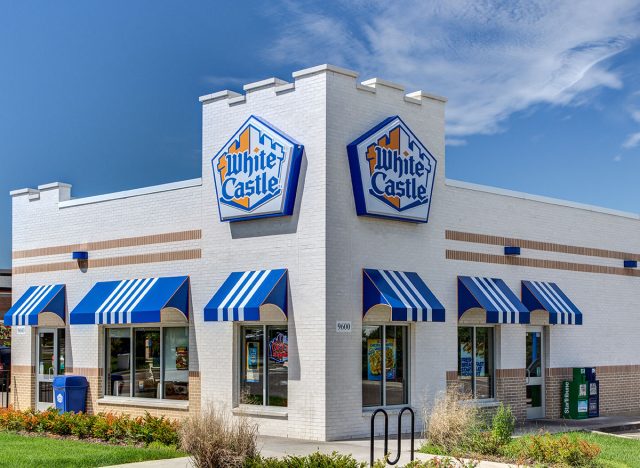
Founded in 1921, White Castle is the longest-running fast-food chain in U.S. history. Unlike other major brands, however, White Castle does not franchise its restaurants. More than a century after its founding, it remains, according to Forbes, a "niche chain."
The burger slinger's revenue grew between 2015 and 2020, bolstered, in part, by sales of its products at supermarkets. Over the same five-year period, the chain's footprint got smaller, with a loss of about 30 units. As of 2022, White Castle has an estimated 349 locations.
